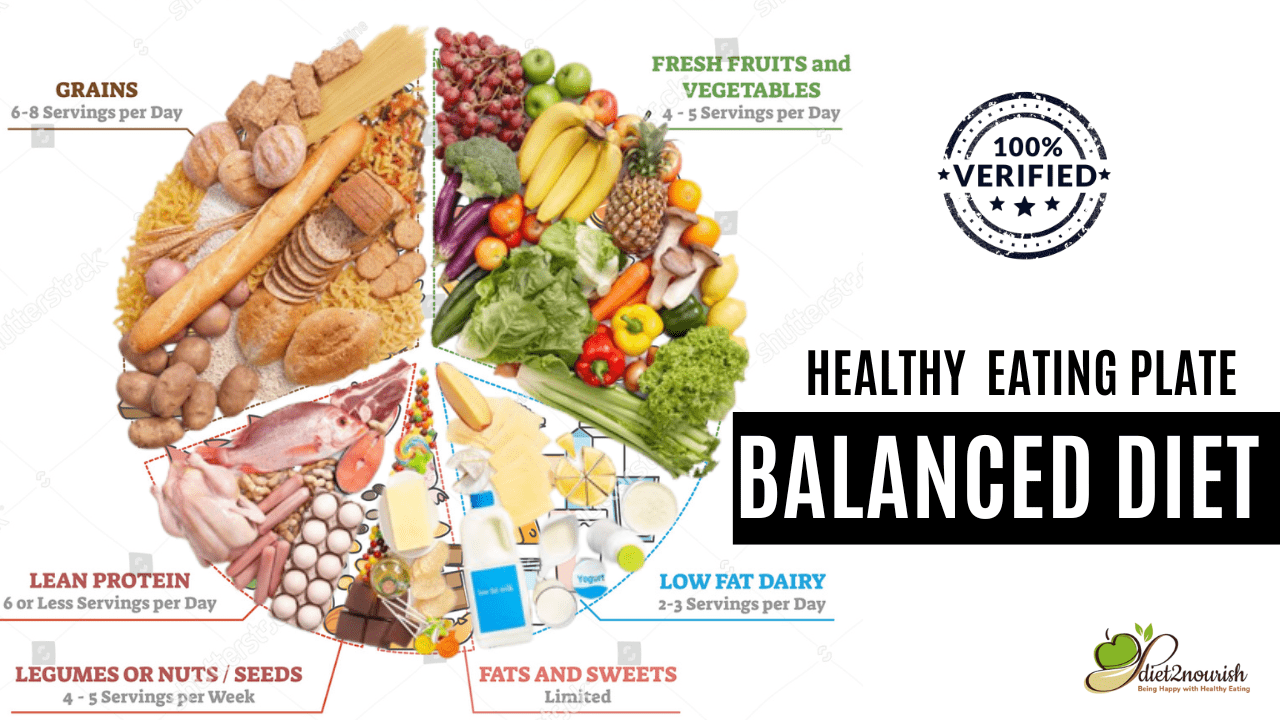The Future of Balanced Diet , According to an Expert from diet2nourish's blog
A balanced diet is essential for maintaining good health and well-being. It refers to consuming a variety of foods that provide the right amount of nutrients to support the body's functions. A balanced diet includes foods from all major food groups, such as fruits, vegetables, grains, proteins, and dairy products, in appropriate proportions. In this article, we will discuss the importance of a balanced diet, its components, and how to achieve it.
Importance of a Balanced Diet
A balanced diet is crucial for overall health and disease prevention. It provides the necessary nutrients required for proper functioning of the body, such as carbohydrates, proteins, fats, vitamins, and minerals. Each nutrient has a specific function in the body, and a deficiency of any nutrient can lead to health problems. For example, inadequate intake of calcium can cause weak bones, and low iron levels can lead to anemia.
A balanced diet is also essential for maintaining a healthy weight. Consuming more calories than the body needs leads to weight gain, while consuming fewer calories than the body needs leads to weight loss. A balanced diet helps regulate calorie intake and prevents overeating, leading to weight management.
Components of a Balanced Diet:
A balanced diet consists of the following components:
Carbohydrates: Carbohydrates are the primary source of energy for the body. They are found in foods such as bread, pasta, rice, potatoes, and fruits. Complex carbohydrates, such as whole-grain bread and brown rice, are preferred over simple carbohydrates, such as sugar, as they provide sustained energy and are more nutrient-dense.
Proteins: Proteins are essential for building and repairing tissues in the body. They are found in foods such as meat, fish, poultry, beans, nuts, and soy products. It is recommended to consume a variety of protein sources to ensure adequate intake of all essential amino acids.
Fats: Fats provide energy, insulation, and cushioning to the body. They are found in foods such as oils, butter, nuts, and seeds. Unsaturated fats, such as those found in avocados, nuts, and olive oil, are preferred over saturated and trans fats, which can raise cholesterol levels and increase the risk of heart disease.
Vitamins and Minerals: Vitamins and minerals are essential for various functions in the body, such as maintaining healthy bones, skin, and eyes. They are found in foods such as fruits, vegetables, dairy products, and meat. It is recommended to consume a variety of these foods to ensure adequate intake of all essential vitamins and minerals.
Fiber: Fiber helps regulate digestion and prevent constipation. It is found in foods such as fruits, vegetables, whole grains, and legumes.
Achieving a Balanced Diet:
To achieve a balanced diet, it is recommended to follow these guidelines:
- Eat a variety of foods from all food groups.
- Limit intake of sugar, salt, and saturated and trans fats.
- Choose whole-grain products over refined products.
- Consume lean protein sources such as fish, poultry, and beans.
- Eat at least five servings of fruits and vegetables daily.
- Drink plenty of water.
- Limit alcohol consumption.
Conclusion:
A balanced diet is crucial for maintaining good health and preventing diseases. It provides the necessary nutrients required for proper functioning of the body, and helps regulate calorie intake leading to weight management. To achieve a balanced diet, it is recommended to consume a variety of foods from all food groups, limit intake of sugar, salt, and fats, choose whole-grain products, consume lean protein sources, eat fruits and vegetables, drink plenty of water, and limit alcohol consumption. A balanced diet combined with regular exercise is key to maintaining good health and well-being.


The Wall